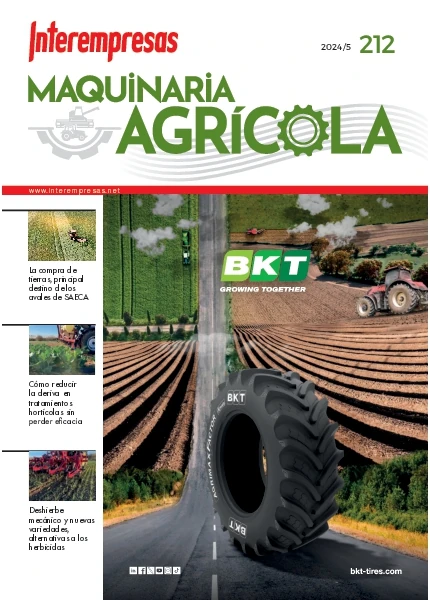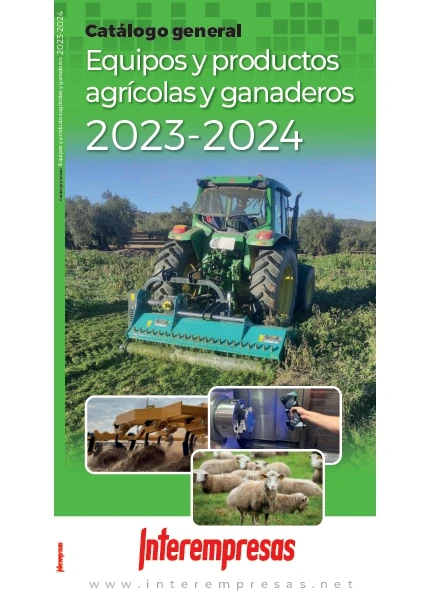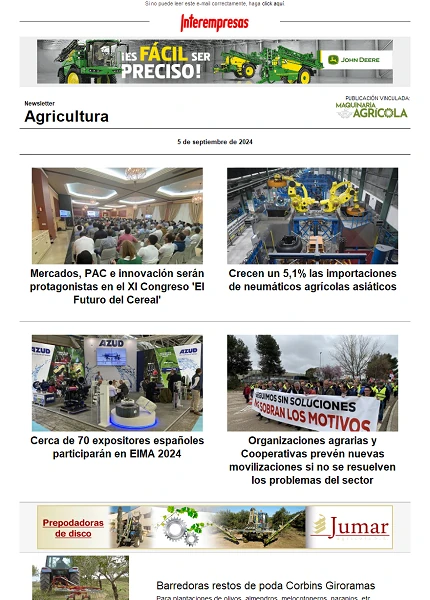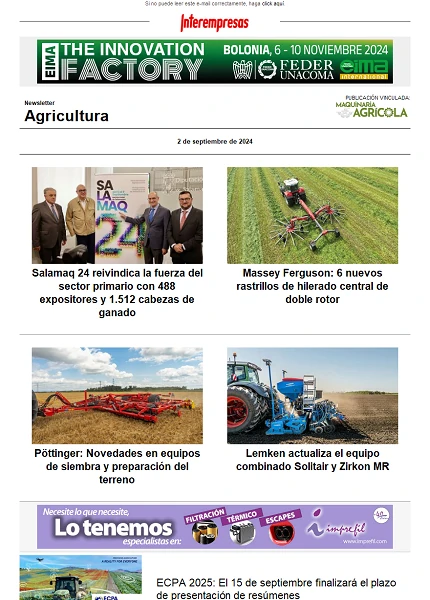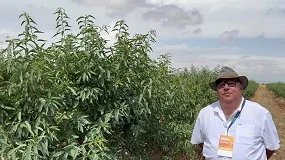The IRTA hosts a Conference on the presence of biofilms in the food industry
on February 7, 2011
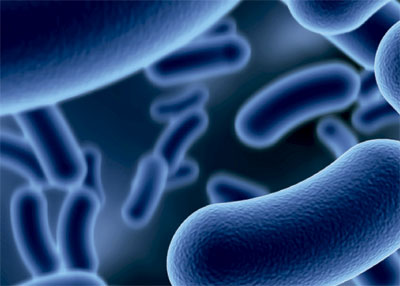
“The presence of biofilms in the equipment and material and in the surfaces of the alimentary industry is a very common fact. Probably, it constitutes the main cause of pollution during the process. In the CENTA-IRTA, like technological centre expert in alimentary hygiene, have received a lot of queries on this subject. By this reason consider that it would be of big interest for the companies the offer them an informative and didactic day on the detection, control and elimination of biofilms, with several reports of experts in the subject”, argues Narcís Grèbol, director of Innovation of the CENTA.And it is that from the technological centre explain how arose the idea to develop a technical session to the biofilms, one of the main challenges to which has to face up the industry agroalimentaria. His learning produces on many of the surfaces of contact with the foods, so much in enclosed systems (pipes, pumps, membranes, exchangers, etc.), as in open systems (tables of work, knives, stravel of transport, machinery, etc.), because of the presence of microorganisms and of conditions (surfaces, nutrients, humidity, sustrato, etc.), that facilitate his implantation and development, as it explains Grèbol, from the CENTA. By the same reasons, also develop biofilms directly on the own foods, being managers, in this case, of his possible final pollution.
Dress the importance to tackle this phenomenon and with the intention to boost the hygienic best practices in this field, the company Itram Hygiene, IRTA (Technology of the foods), CENTA (Centre of new alimentary technologies) and l'Escola Agrària of l'Emporda (GIVE, Government of Catalonia) organised the past 20 January a technical day with the title ‘Detection, control and elimination of biofilms in the industry agroalimentaria'. The act took place in the auditssorium of the Irta of Monells and in him participated some fifty people, especially responsible of pertinent quality of the dairy sectors, cárnico, of additives, packaging, fish preserves and cleaning in the alimentary field. The day, that had a big received given the number of assistants in opinion of the responsible of Innovation of the CENTA, deepened on the problematic that supposes the presence of biofilms in the alimentary industry offering the possibility to take advantage of the knowledge and the experience of the experts so that each one of the assistants could design his own solutions. The program included reports to charge of the doctor José Juan Rodríguez Jerez, professor title of Nutrition and Bromatologia and director of the Group of Investigation Biorisc-GRISC of the Autonomous University of Barcelona, of Vanessa Montañez Izquierdo, researcher of the same centre, and of Almudena Jail, responsible of Projects of R&D of the company Realco (Belgium). Between the subjects treated, tackled the description of sensors of microbiological control of surfaces and of the solutions with enzymatic products for the elimination of biofilms.
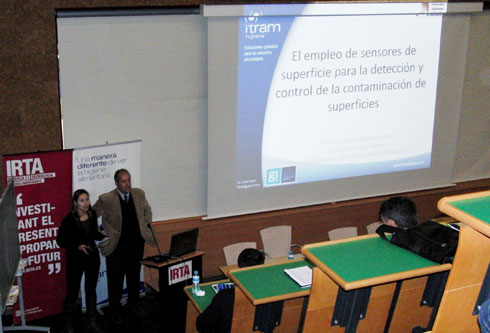
"We define biofilms as an Association of micro-organisms attached to a surface: micro-organisms have a natural tendency to adhere to surfaces to multiply and wrapped in a viscous matrix composed of extracellular polymers (EPS) which themselves produce and which allows them to protect themselves and survive in a hostile environment"defined Narcis Grèbol, director of innovation of the CENTA. Also, these sources recognize the adherence of microorganisms to surfaces as one of the greatest challenges in food security. "In a biofilm structure, micro-organisms are - continues - an anchor point, a reserve of nutrients and protection against disinfectants." "A biofilm may allow that specifically virulent strains of pathogens reside in a stable in production of food environments and are the origin of outbreaks of serious food toxiinfecciones for consumers". Ultimately, prevent, detect, control and eliminate the biofilms, contributes "effectively" to improve the safety of food.
Biofilms determine that a product or batch will be acceptable or not
Since biofilms, micro-organisms arrive at food continuously in time, by contact and contamination, and constitute a factor of increased risk against the pathogens. Since the CENTA are convinced that the presence or absence of this phenomenon determines that a product or batch may be acceptable or not. If not so, consequences are very negative for the majority of plants: losses economic, stops the chain of production, to name a few. "When the biofilm transfers, in addition, microorganisms of alteration, the durability and acceptability of the product are diminished in that batch, or the product is affected continuously if the biofilm is not achieved remove the sliding contact surface", recognizes Grèbol. As already seen, prevention is vital, but so are the detection, control and elimination of these films of microorganisms. To do so, and according to the technology centre, must start "of a favourable industrial situation". "A good hygienic design of processes, facilities and equipment, and management of hygiene, cleanliness and effective disinfection system, are the prerequisites necessary for the effective fight against biofilms". To this end, the director of innovation of the CENTA, recommend the use of contact surfaces with antimicrobial properties permanent, keep dry surfaces in facilities and equipment, the use of methods of detection of organic matter and microorganisms on surfaces by bioluminescence and the use of surface and epifluorescence microscopy sensors. Other techniques and strategies to combine order to control and suppress biofilms are the use of enzyme systems for the removal of biofilms, the proper design of the use of disinfectants or control of specific bacteriophages by pathogens.
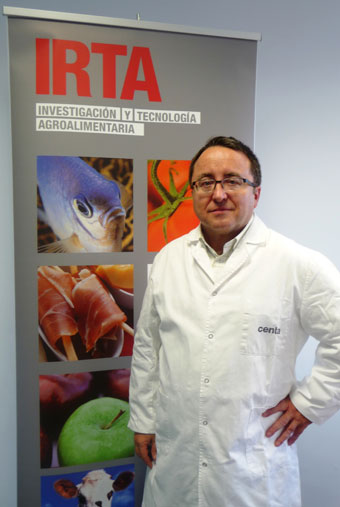
Industry, aware of the hazards associated with pathogens
In general, the food industry is aware and knows the dangers associated with pathogens, according to the head of innovation of the CENTA. In his opinion, and as explained to Interempresas, the majority of the industry has implemented voluntary food safety management systems. However, they have also recognized that occasionally cleaning and disinfection of surfaces and equipment, protocols may not be fully effective in the presence of biofilms. "When the industry detected incidents during the hygienic indicators of surfaces or finished product controls, implement specific strategies aimed at the detection, control and elimination of biofilms, helps to optimize control of hygiene processes and food safety of products"He concludes.
The CENTA-IRTA, always in coordination with IRTA, tries to offer the best quality of transfer, training, consultancy and project companies, in matters of technology, hygiene and food security through stable relations of cooperation with generators of knowledgetechnology centres, universities, companies and associations. Within the framework of the hygiene, carry out periodic thematic conferences. As the of the last day of January 20 in Monells. In addition, and as a result of the collaboration continued between the Catalan Agency of food security (ACSA), the IRTA and the CENTA, organized a day of validation of thermal processes in food, also in Girona, addressed to the validation quantitative thermal processes and specific on the pathogens listed as danger in every product HACCP plans.


